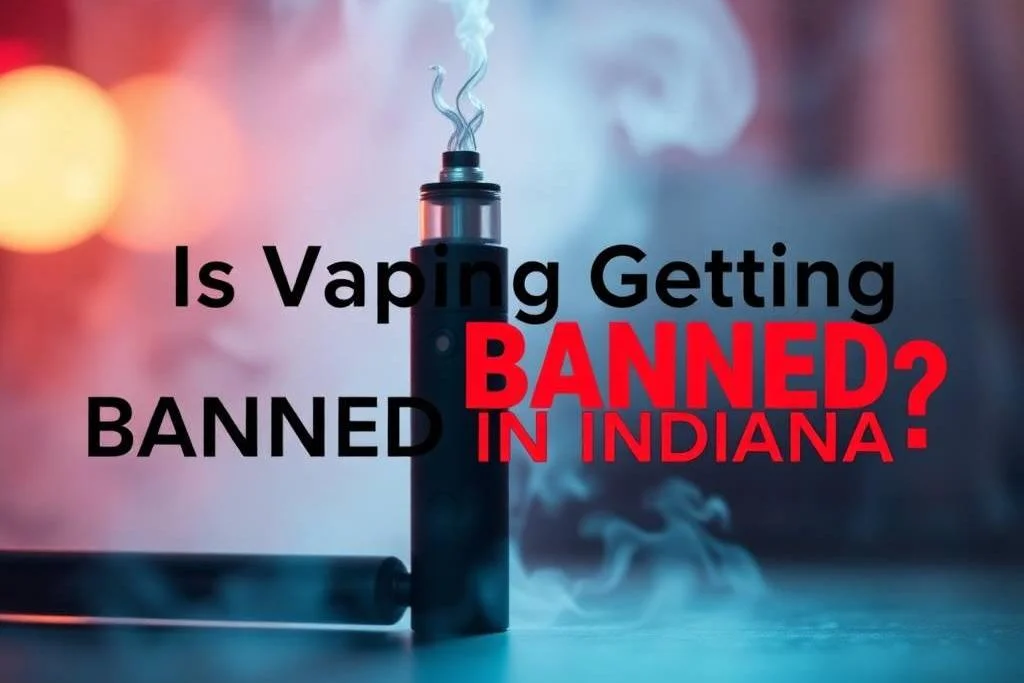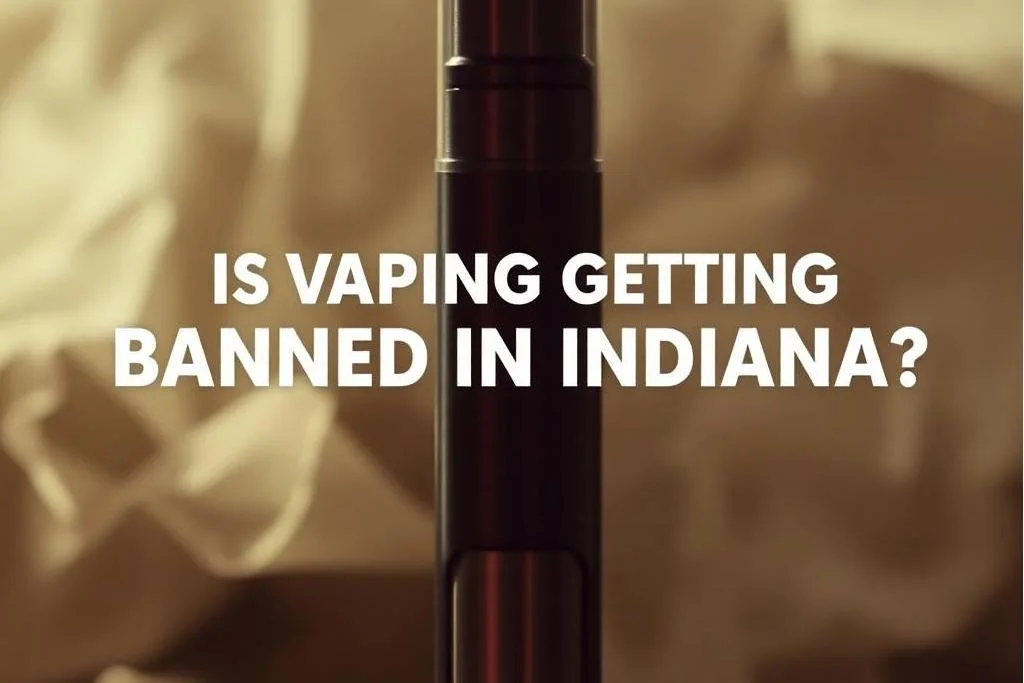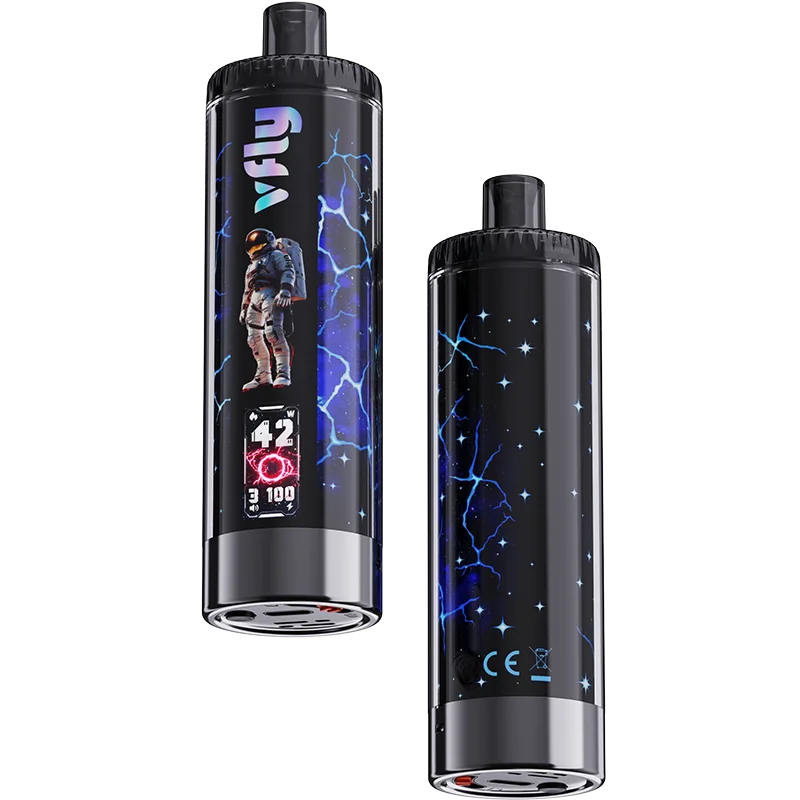Is Vaping Getting Banned in Indiana?
If you search “is vape getting banned in Indiana”, you’ll find mounting legislative activity threatening the sale and distribution of vaping products in the state. This guide unpacks what is proposed, what’s already law, who it affects, and what to expect in the months ahead.
Current Legal Landscape: What’s Already in Place
Before diving into new proposals, it helps to know the baseline restrictions Indiana currently enforces on vaping and e-liquid.
- Minimum Age 21 (Tobacco 21 / Federal law) Indiana follows the federal standard: no sale of tobacco or vapor products to anyone under 21. In fact, in state statute, Indiana bars not only sale but possession/purchase by under-21 individuals.
- Excise / Vapor Taxes Vapor products and e-liquids are taxed at 15% of gross retail income. Closed system cartridges (pods, prefilled cartridges) face an additional 15% tax at wholesale.
- Packaging, Labeling & Nicotine Caps E-liquids must be sold with child-resistant and tamper-evident packaging. Retailers are barred from selling e-liquids with nicotine content exceeding 75 mg/mL.
- Retail / Access Restrictions Self-service displays and vending machine sales of vapor products are limited: allowed only in tobacconists / vape shops or behind counters inaccessible to under-21 persons. New vape / e-liquid specialty shops may not be located within 1,000 feet of a school (for new businesses) as of July 2020. Sale of e-liquid containing vitamin E acetate is prohibited.
- Public Use / Indoor Vaping Indiana’s “Smoke-Free Air” rules apply to many traditional indoor public spaces, and vaping is often treated similarly in many local ordinances. Also, several municipalities in Indiana have local vape bans (e.g. Indianapolis bans vaping in enclosed workplaces, etc.).
So, while vaping is not currently banned outright statewide, Indiana has one of the more regulated frameworks in the U.S.

The Big Threat: House Bill 1218 (and HB 1650)
HB 1218 — Full Vape Ban Proposal
- The most aggressive proposal in circulation is HB 1218 (2025 session).
- The bill text prohibits distributing, selling, offering to sell, making delivery sale, or exchanging any e-liquid or vapor product in Indiana after June 30, 2025.
- In other words, if passed in its current form, no legal retail or delivery sale of vaping products would be allowed from July 2025 onward.
- Importantly, the language is on distribution and sales, not explicit criminalization of possession of these products (though legal interpretations may vary).
HB 1650 — PMTA / Registry Framework
- A companion or alternative bill, HB 1650, would establish a state-level PMTA-style registry (i.e., a directory of allowable vape products) and impose stricter regulatory burdens.
- Critics say it could favor large tobacco companies—already FDA-authorized product lines—and further restrict independent or smaller vape brands.
These bills (especially 1218) are currently under committee review and subject to amendment or rejection.
What Passage of a Full Ban Would Mean
If HB 1218 becomes law in its present form, here’s the likely impact:
- Closure of vape shops / distributors — businesses relying entirely on e-liquid and vapor product sales would be forced to shut or pivot.
- Consumer access loss — legal access via brick-and-mortar or delivery would vanish.
- Potential black market surge — demand could be filled by unregulated imports, illicit goods, or cross-border purchases.
- Public health risks — some adult vapers may return to cigarettes or illicit untested products.
- Regulatory ambiguity — lack of clarity around possession, enforcement, or grandfathering of existing stock.
Some advocates already warn that a ban risks punishing harm-reduction options and pushing consumers to riskier alternatives.

What You Should Track / Watch
- Committee progress & amendments HB 1218 is still in committee—language might be softened, delayed, or rejected.
- Public hearings / testimony Vape industry, public health groups, and users may submit testimony. These can influence whether the bill advances.
- Court challenges & and enforcement language Even if passed, enforcement of bans often runs into legal challenges (preemption, due process, constitutional issues).
- Local ordinances Many cities in Indiana already enforce stricter vape bans; changes at state level may preempt or complement them.
- Federal / FDA actions Overlap with federal regulation, PMTA approvals or rejections, and legal precedent may affect viability or scope of the ban.
What Stakeholders (Consumers & Businesses) Can Do Now
- Stay informed — monitor the Indiana General Assembly site or bill tracking (e.g. LegiScan).
- Engage — submit comments during public comment periods or hearings.
- Advocate — reach out to state legislators to express concerns or suggest amendments that preserve adult access.
- Plan business pivot — vape retailers should explore alternative revenue streams (e.g. accessories, non-nicotine goods) in case sales become illegal.
- Prepare inventory strategy — if a ban passes, retailers may want to adjust inventory reductions or exit plans.
Conclusion
As of 2025, vaping isn’t banned in Indiana, but that could soon change. House Bill 1218 proposes banning the sale, distribution, and delivery of all vape products starting July 1, 2025, while HB 1650 would create a state registry of approved products, potentially favoring big tobacco brands. Indiana already enforces strict rules—21+ age limit, 15% vape tax, and child-resistant packaging—but a full ban could shut down vape shops and limit consumer access. The bills are still under review, and advocates urge vapers and retailers to stay alert and involved as the debate continues.
FAQs
1. Will vaping (e-liquids and devices) be illegal for sale in Indiana?
Under House Bill 1218, the proposal is to make it illegal after June 30, 2025, to distribute, sell, offer for sale, deliver, or exchange any e-liquid or vapor product within the state. However, HB 1218 is still under committee review and has not yet passed into law.
2. Does the proposed ban criminalize possession of vaping products for users?
No. The current language of HB 1218 focuses on commercial activities — sale, distribution, delivery, etc. — rather than punishing individuals for possession.
3. What is the status of HB 1218 as of now?
HB 1218 was introduced on January 8, 2025, and referred to the House Public Policy Committee. As of the latest updates, it has not advanced out of committee and has not become law.
4. What existing regulations on vaping already apply in Indiana?
Indiana already enforces a number of vaping and e-liquid rules including:
- Age restrictions: Sale, possession, or use under age 21 is prohibited.
- Taxation: A 15% excise tax on gross retail vapor product/e-liquid sales, and 15% tax on closed-system cartridges at wholesale.
- Packaging & nicotine caps: Child-resistant and tamper-evident packaging is required; e-liquids cannot exceed 75 mg/mL nicotine.
- Retail restrictions: No self-service displays accessible to under-21s; new vape shops must be at least 1,000 feet from schools.
5. If the ban passes, when would it take effect and how would it impact vape businesses?
If passed in its current form, HB 1218 would take effect July 1, 2025 — meaning that from that date onward, no legal retail sale, distribution, or delivery of vaping products would be allowed in Indiana. Vape shops, distributors, and retailers would face closure or drastic business model changes, and adult consumers would lose legal access through in-state channels.



